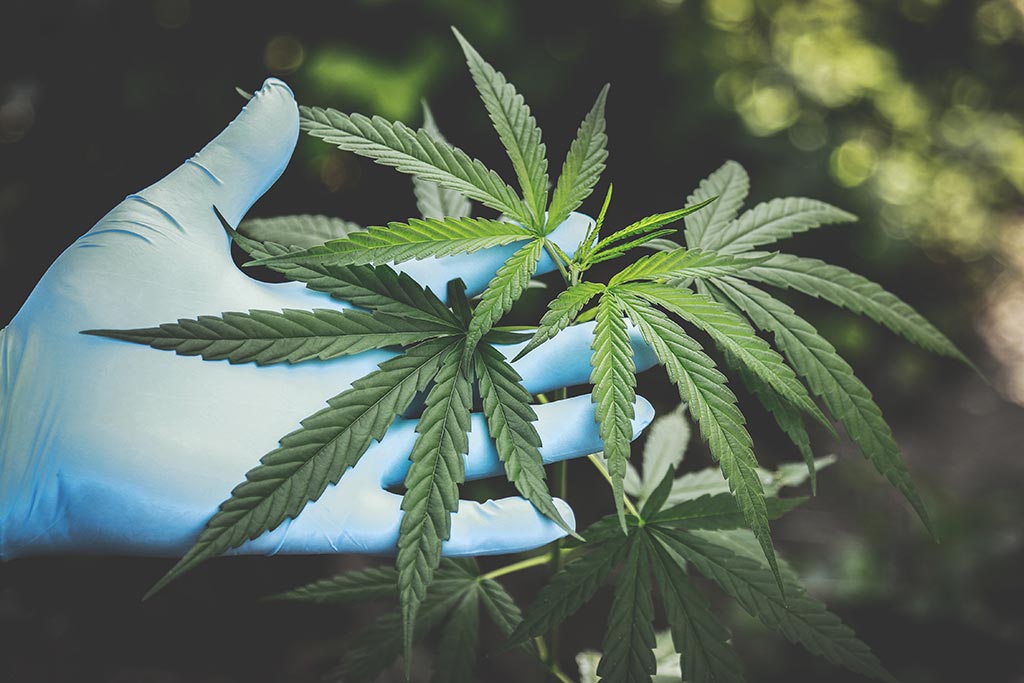CBD and drugs: are there any interactions and contraindications?
The properties of CBD, or cannabidiol, have been the focus of attention in the health community for many years.
CBD, unlike THC, is totally legal in Switzerland. The plant can be used in a variety of forms, including CBD oil, flowers and topical creams.
While these virtues are increasingly validated by science, one question remains for those on medication: is there a risk in consuming CBD alongside medication? Naturalpes reveals everything you need to know about CBD's interactions with medication and its contraindications.
Should you be careful with medications when taking CBD?
To answer this question briefly: yes, you need to pay attention to the medications you take when using CBD. Talking to your doctor about CBD is essential if you want to avoid any risks. The dangers of CBD are low, and possible drug interactions have yet to be fully investigated.
In any case, only a health professional can tell you if there is a drug interaction between your treatment and the use of CBD.

Cannabidiol and contraindications
Apart from drug interaction, there are few contraindications to the use of CBD, its side effects being rare and often less painful than the symptoms it helps relieve. However, there are a few.
You should be cautious about using CBD if :
- You are pregnant, as CBD is suspected of altering the properties of the placenta;
- Suffering from severe pollen allergy;
- You suffer from arterial or cardiac problems, as CBD may cause a drop in blood pressure.
CBD and cytochrome "P450" liver enzymes
The hepatic cytochrome "P450" enzymes are a group of enzymes responsible for the metabolism of most drugs in the body. These enzymes can activate or deactivate drugs. CBD has the ability to inhibit this enzyme.
This is also the case for grapefruit. However, this drug interaction is negligible in moderate quantities. A simple solution is not to use CBD at the same time as medication.

CBD and antidepressants, anxiolytics and sleeping pills
Interactions between CBD and antidepressants, anxiolytics and sleeping pills are the focus of concern, since these drugs have similar effects to cannabidiol.
At present, no studies appear to show any harmful interaction between these drugs and cannabidiol. Nevertheless, some users have reported problems of drowsiness and confusion.
CBD and thyroid hormones
Although we don't know exactly how, cannabinoids influence the concentration of thyroid hormones such as TSH and T4. No interaction with traditional treatments for thyroid problems has yet been detected.
CBD and corticosteroids (or steroidal anti-inflammatory drugs)
Corticosteroids can be used to treat many types of chronic conditions and diseases such as asthma, arthritis, lupus, ulcerative colitis, psoriasis, Crohn's disease and many others. It is thus a very widespread treatment.
No known interactions with traditional treatments for thyroid problems have been detected to date. However, caution is advised.
CBD and antihistamines
A study has shown that CBD interacts with the enzymes that metabolize doxylamine, a first generation antihistamine widely used around the world to treat allergies. This interaction would lead to cognitive impairment, drowsiness and breathing difficulties. Again, further studies are needed to validate the interaction between these two substances.
CBD and anticoagulants
CBD's interactions with anticoagulants are not well understood. CBD is thought to interact with anticoagulants in a way that can lead to bleeding.
Indeed, CBD would have the ability to reduce platelet aggregation and prolong bleeding time. Studies are needed to prove this drug interaction. If you are taking anticoagulant treatment, talking to your doctor about CBD is the wisest course of action.
CBD and painkillers
Interactions between CBD and painkillers do not appear to be dangerous in the present state of scientific knowledge. However, an American study suggests that the effects of these two substances may be additive, leading to drowsiness and cognitive impairment. Caution is therefore advised.
CBD and anti-hyperglycemics
People with diabetes take anti-hyperplatemic medication to control their blood sugar levels. The combined effect of the two substances would create lactic acidosis. At present, these effects are only hypothesized. But, as a precaution, it's advisable to be cautious if you suffer from diabetes.

CBD: contraindications and drug interactions, what to conclude?
Numerous studies, corroborated by testimonials, suggest that CBD use may interact with certain medications. A significant proportion of the population may therefore be contraindicated to taking CBD.
However, this finding needs to be qualified. For almost all of these interactions, there are too few studies to draw reliable conclusions.
Should any serious interactions with the most common drugs occur, they will be brought to the attention of the medical community.
Just ask your doctor before using CBD. Feel free to share your experience in the comments section.
Official sources
https://www.bag.admin.ch/bag/de/home/medizin-und-forschung/heilmittel/med-anwend-cannabis.html
https://www.parlament.ch/de/ratsbetrieb/suche-curia-vista/geschaeft?AffairId=20205480

